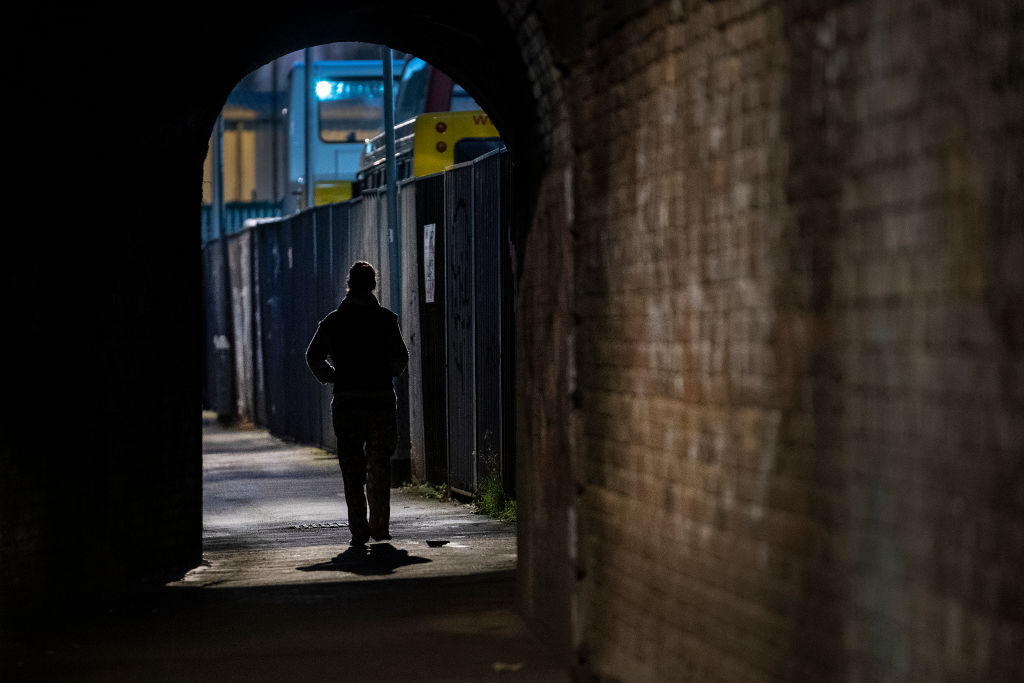Today the High Court in London hears a landmark legal challenge. It relates to the policy for criminal records for prostitution to be held on file until those convicted are 100 years old. Currently, women who have escaped the sex trade and have convictions for street soliciting will have to live with this record for ever. And it’s not only the police that can access these records – so too can bodies including the Royal Mail, trading standards and credit checking organisations. This is not just a gross violation of human rights, but also deeply unjust.
As I have discovered during the vast amount of in-depth research on the global sex trade I have conducted over the past three decades, women find it difficult if not impossible to exit prostitution. Those that do escape are judged, stigmatised and disenfranchised. So how did this legal challenge come about?
In 1996, I met Fiona Broadfoot who was not that long out of prostitution. We were at a conference on violence against women, and Fiona was giving her first public address on the grim realities of the sex trade. Pimped into prostitution aged 15, she had endured indescribable violence at the hands of her pimp and numerous punters. But as I would come to learn, Fiona’s story was more typical than extraordinary.
Fiona had a criminal record several pages long. Women in street prostitution would be routinely picked up by the police and sent through what we called the ‘revolving door’. The magistrates would issue them a fine for soliciting or loitering. Needing to earn the money to pay the fine, the women would go back out onto the streets, get re-arrested, and the whole charade would begin again. The kerb crawlers were rarely arrested and therefore acted with impunity.
Fiona and I came up with an idea: to launch a legal challenge to decriminalise the women selling sex on the streets, and to prevent the law from requiring those women that have previous convictions to disclose them. Handily, my partner, the indomitable Harriet Wistrich qualified as a lawyer in 1997 and began challenging state agencies for failure to tackle violence against women. It took 20 more years before we were able to formulate a constructive case against the Home Office, which involved involving additional claimants alongside Fiona.
In 2018, after three years of jumping through legal loopholes and case preparation the team won a legal challenge against the Disclosure and Barring Scheme, which means that women no longer have to show these records of their abuse and exploitation from many years back. This is a big deal. Prior to the legal challenge, when women with criminal records for soliciting applied to volunteer in any position involving children or vulnerable adults, including at their own children’s school, they would be required to disclose their previous involvement in prostitution.
On hearing about the challenge, and of the fact that a further case would be brought to challenge such criminal records being held on file, a number of women with similar experiences came forward. As Sam, one of the claimants in today’s case tells me, it is interesting that those organisations seeking to normalise and decriminalise the entire sex trade (as opposed to decriminalising the women and criminalising the pimps and punters) have not taken this case to court despite their considerable resources and networks of lawyers that take the ‘sex work is work’ line.
A number of years ago, distressed by yet another knock-back following a job interview, Sam approached one of the ‘sex work is work’ groups in the hope they would help her. Despite the fact that our very high profile legal case was already in progress, of which this group was well aware, Sam was merely advised to write a letter of disclosure ‘explaining’ her convictions and outlining how she got involved in prostitution which she could add to her job applications in the future. ‘It took me another four years before I found Harriet and Fiona, by looking online for women that are against prostitution rather than celebrating it as a profession,’ she says.
The powerful lobby which views prostitution as ‘sex work’ has neither been involved nor helpful in this case. As I wrote about the 2018 case at the time:
‘When Fiona [Broadfoot] and I contacted members of the pro-prostitution lobby to ask if we could form a united front to argue for the decriminalisation of the women, we were told, in somewhat hostile terms, that they would not work with abolitionists. We were further told that if we dropped our efforts to criminalise sex buyers then they may consider joining forces with us. We refused.’
Had that same offer been made regarding today’s legal challenge we would have refused again. Protecting the men that create the demand for prostitution is a disgrace. These men are the very reason why women are sexually exploited, and yet groups such as the English Collective of Prostitutes argue that criminalising them is wrong. Until we end demand for prostitution, more women like Fiona and Sam will be drawn into this nightmarish life.
If today’s case succeeds, the victory will be down to the sex trade survivors that dare to expose the truth about the horrors of the sex trade, and not those that seek to sanitise it.







Comments